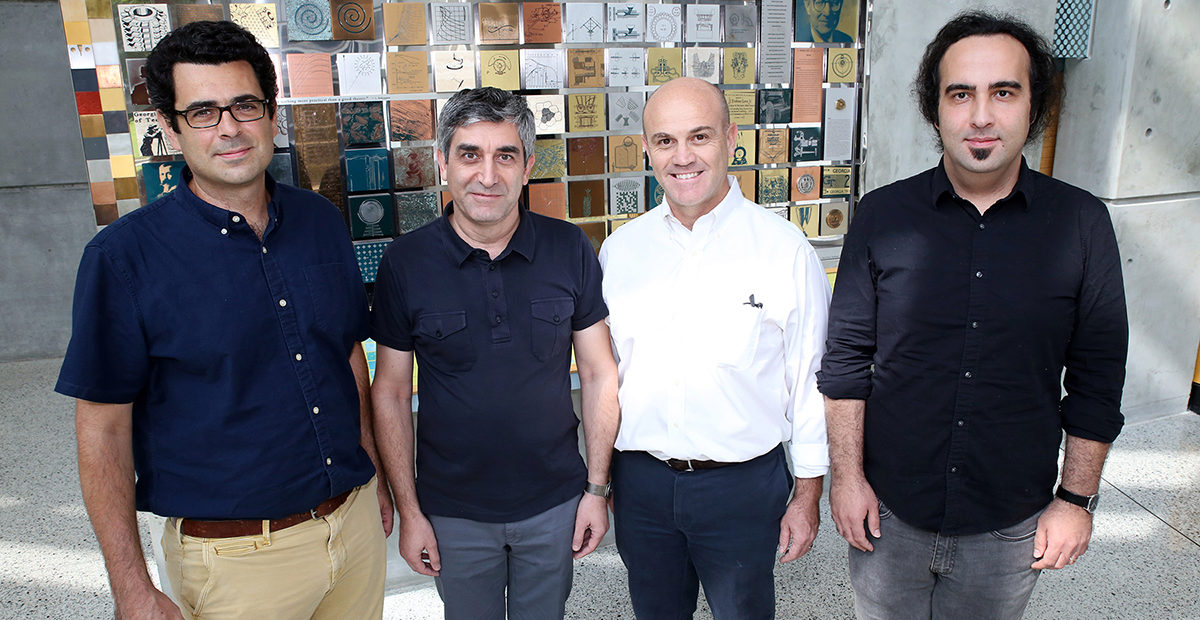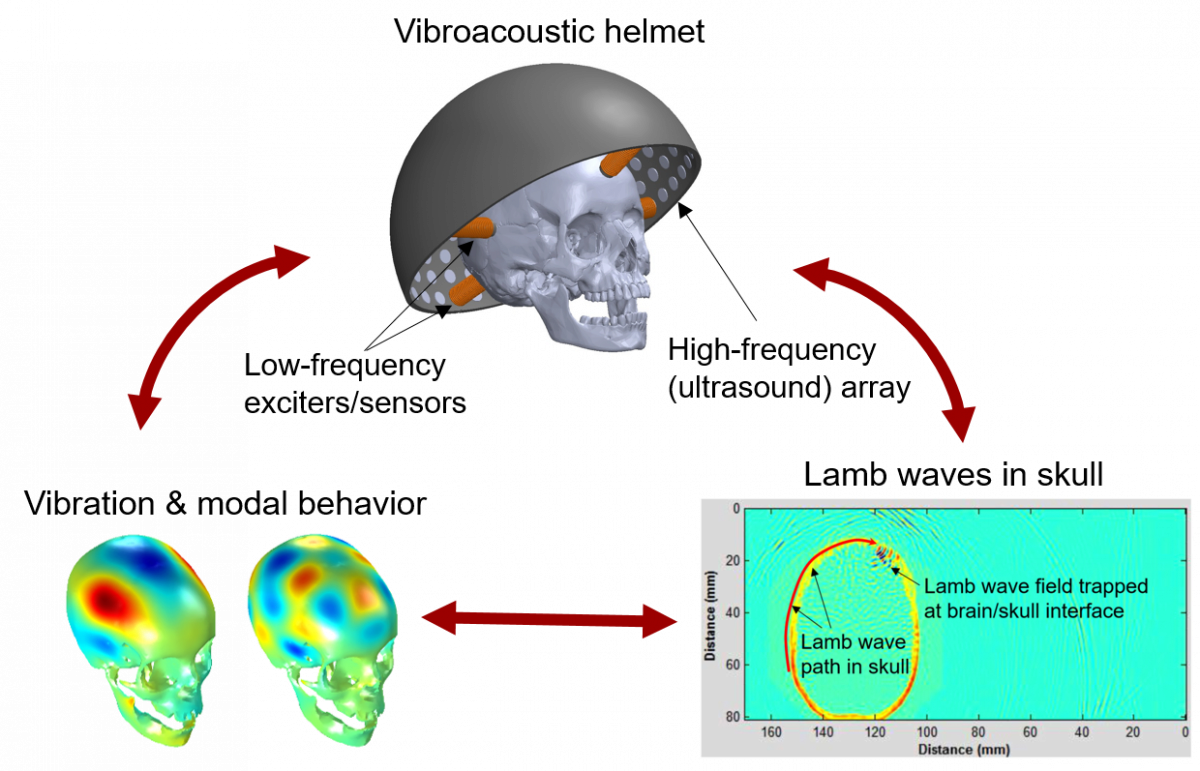
Professor Massimo Ruzzene and an interdisciplinary research team of Georgia Tech colleagues have been chosen to receive one of the National Science Foundation's inaugural LEAP-HI (Leading Engineering of America's Prosperity, Health, and Infrastructure) grants. The five-year, $500,000 grant will allow the team to investigate coupled skull-brain vibroacoustics and ultrasound, focusing on the development of enhanced therapy and diagnosis.
In addition to Ruzzene, the research team includes professors Alper Erturk, Costas Arvanitis and Levent Degertekin, all from the Woodruff School of Mechanical Engineering, where Ruzzene holds a joint appointment.
The LEAP-HI program was established by NSF to “challenge the engineering research community to take a leadership role in addressing demanding, urgent, and consequential challenges for advancing America’s prosperity, health and infrastructure.”
The award supports fundamental research to overcome current difficulties in guiding acoustical energy through the skull and into the brain in a controlled way.
The proposed research will "investigate vibration and wave propagation characteristics of the skull-brain system over a broad frequency range, from low frequencies to the ultrasound regime, by using synergistic analytical, computational, and experimental methods,” said Erturk.
"Our exploration of the skull and brain as a combined dynamical system will not only advance our understanding of ultrasound-based treatments, but also open new possibilities for diagnosis and therapy, which currently view the skull as a major obstacle, far from leveraging its dynamic properties."
The PIs believe that the state-of-the-art medical ultrasound research for brain injuries can strongly benefit from a coupled investigation of the skull and the brain as a single vibroacoustic system.
“We are excited to work on this truly interdisciplinary project that might lead to unprecedented opportunities in the diagnosis and therapy of brain diseases” said Arvanitis, who has done extensive research in transcranial- focused ultrasound over the past years.
The outcomes of this LEAP-HI research project are expected to spark important improvements in the diagnosis and treatment of brain cancer, brain trauma and cranial defects, the mapping of brain function, and neurostimulation.
Find out more about this research program
